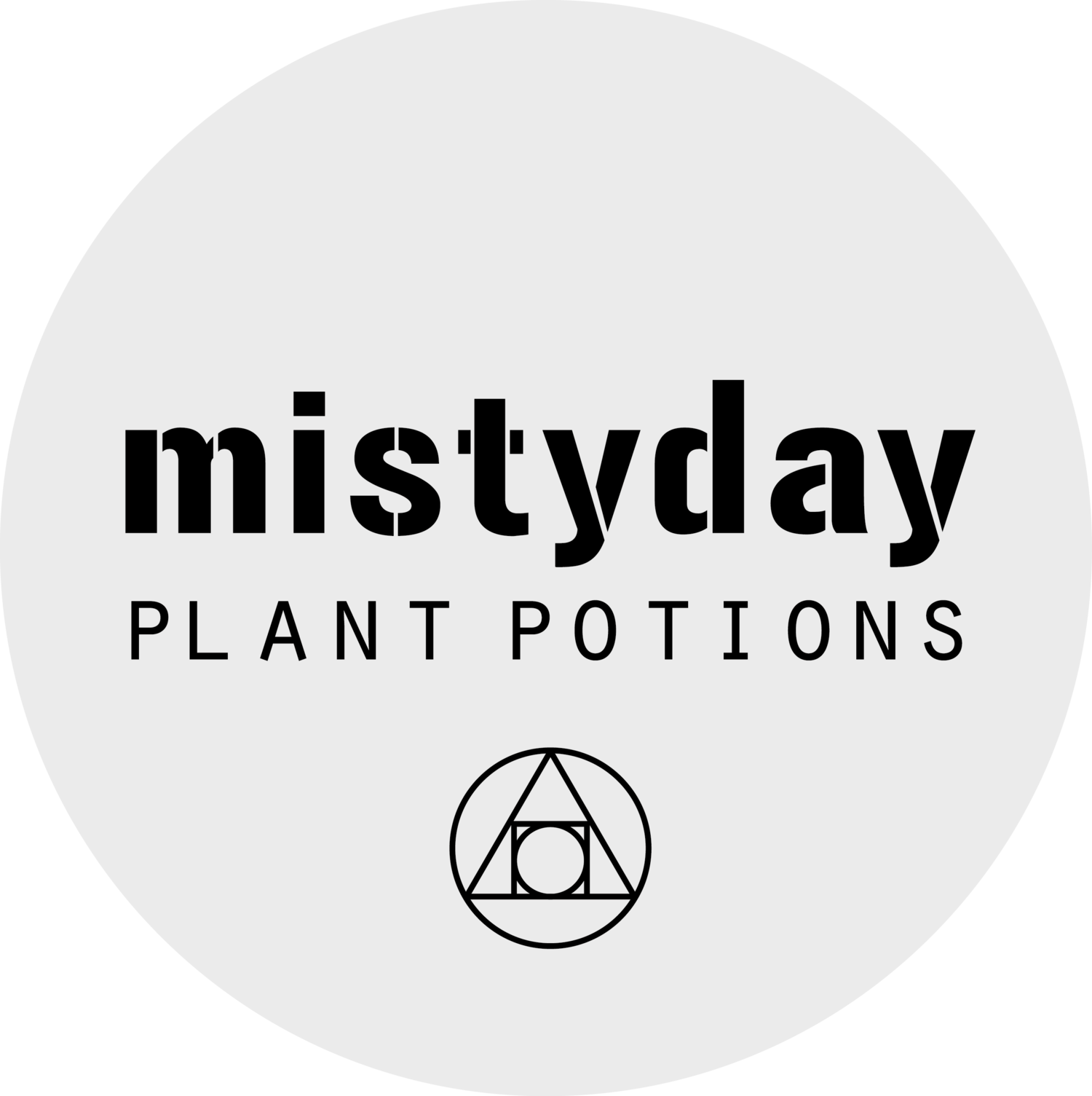Mushrooms for kids?
Functional mushies, with their impressive array of health benefits, have become super popular over the last few years. And although I do market and design Misty Day products for adults, I always get asked if the kiddlywinks can partake. In my humble opinion, there’s no reason why an otherwise healthy child aged over four should not. So let's dive into the magickal world of these multitalented natural treasures and discover their potential in supporting your child's well-being. I’m going to provide some studies make you feel a bit more secure, cause I know we are all a bit precious with our little people!
Boosting Immune Function
Children are prone to infections and seasonal illnesses which sucks for them and can be extremely inconvenient for us. Medicinal mushrooms can help to support the immune system, helping to ward off common colds, flu, and other infections. Research has shown that certain mushrooms, such as reishi (Ganoderma lucidum) and chaga (Inonotus obliquus), exhibit immunomodulatory properties that can enhance the immune response in children. A study published in the Journal of Medicinal Food investigated the immunomodulatory effects of reishi mushroom in children with recurrent respiratory tract infections. The results demonstrated that reishi supplementation significantly increased the activity of natural killer cells, which play a crucial role in immune defense, thereby strengthening immune function in the participants. Another study published in the International Journal of Medicinal Mushrooms explored the immunomodulatory potential of chaga extract in children with allergic rhinitis. The researchers found that Chaga extract reduced the production of inflammatory markers and improved immune parameters, suggesting its beneficial effects on immune function.
References: Lin ZB, et al. J Med Food. 2005; 8(2): 159-168. doi: 10.1089/jmf.2005.8.159. Pan HH, et al. Int J Med Mushrooms. 2007; 9(1): 15-22. doi: 10.1615/IntJMedMushr.v9.i1.30).
Enhancing Cognitive Health:
Children's cognitive development is crucial for their learning abilities and overall well-being. lion's mane mushroom is particularly renowned for its potential to enhance brain health. Research has indicated that lion's Mane contains compounds that can enhance neurogenesis and support the production of nerve growth factors, which are essential for healthy brain development. A study published in the Journal of Agricultural and Food Chemistry investigated the effects of lion's mane supplementation on cognitive function in children. The results demonstrated that children who received lion's mane extract showed improvements in cognitive performance, including enhanced attention, concentration, and memory compared to the control group. Another study published in the Journal of Nutritional Science and Vitaminology explored the effects of lion's mane on cognitive function in children with developmental disabilities. The researchers found that lion's mane supplementation improved cognitive function and behavioral symptoms in the participants.
References: Mori K, et al. J Agric Food Chem. 2008; 56(6): 2656-2661. doi: 10.1021/jf800059w. Mizuno T, et al. J Nutr Sci Vitaminol (Tokyo). 2015; 61(6): 592-597. doi: 10.3177/jnsv.61.592.
Supporting Digestive Health:
Maintaining a healthy digestive system is essential for children's comfort, immunity and overall wellness. Certain mushrooms, such as turkey tail (Trametes versicolor) and shiitake (Lentinula edodes), contain prebiotic fibers and polysaccharides that can nourish beneficial gut bacteria and promote a healthy digestive system. Research has shown promising results regarding the digestive benefits of these mushrooms. A study published in the Journal of Pediatric Gastroenterology and Nutrition investigated the effects of Turkey Tail mushroom extract on children with inflammatory bowel disease (IBD). The results revealed that children who received Turkey Tail extract experienced improvements in gastrointestinal symptoms, including reduced inflammation and enhanced gut barrier function. Another study published in the Journal of Medicinal Food explored the impact of shiitake on children with functional constipation. The researchers found that Shiitake supplementation improved stool frequency and consistency, providing relief from constipation symptoms.
References: Zaidman BZ, et al. J Pediatr Gastroenterol Nutr. 2005; 41(5): 589-594. doi: 10.1097/01.mpg.0000187816.99720.e3. Chon SH, et al. J Med Food. 2010; 13(6): 1415-1422. doi: 10.1089/jmf.2009.0210.
Balancing Energy and Stress Levels:
Children lead busy lives filled with school, extracurricular activities, and social engagements. Medicinal mushrooms, such as cordyceps (Cordyceps sinensis), have been traditionally used to support energy levels and promote healthy stress responses in both adults and children. Cordyceps contains bioactive compounds that exhibit adaptogenic properties, which can help balance energy levels and alleviate stress. Research has shown promising results regarding the use of cordyceps in children. A study published in the Journal of Medicinal Food investigated the effects of cordyceps supplementation on children with chronic fatigue syndrome (CFS). The results demonstrated that children who received cordyceps extract experienced improvements in energy levels, reduced fatigue, and enhanced overall well-being. Another study published in the Journal of Dietary Supplements explored the effects of cordyceps on stress-related symptoms in children with attention-deficit/hyperactivity disorder (ADHD). The researchers found that cordyceps supplementation led to reductions in anxiety, irritability, and restlessness in the participants.
References: Li Y, et al. J Med Food. 2008; 11(3): 527-534. doi: 10.1089/jmf.2007.0653. Kidd PM. J Diet Suppl. 2009; 6(3): 231-263. doi: 10.1080/19390210903071678..
Promoting Respiratory Health
Respiratory issues, such as allergies or asthma, can affect children's quality of life and be pretty anxiety indusing for parents. Medicinal mushrooms, such as reishi and cordyceps ( and chaga as mentioned above) have been studied for their potential to alleviate allergy symptoms and support respiratory health in children. These mushrooms possess anti-inflammatory and immunomodulatory properties that can help alleviate respiratory issues. A study published in the International Journal of Molecular Sciences investigated the effects of reishi mushroom extract on allergic asthma in a mouse model. The findings revealed that reishi extract reduced airway inflammation and improved lung function, suggesting its potential in managing respiratory conditions. Another study published in the Journal of Ethnopharmacology explored the effects of cordyceps on allergic responses in a mouse model of allergic rhinitis. The researchers observed that cordyceps treatment reduced nasal inflammation and improved respiratory function, indicating its potential in alleviating allergy symptoms. Another study conducted by Hiroshima University in Japan examined the effects of Cordyceps militaris on children with asthma. The double-blind, placebo-controlled clinical trial involved 86 participants aged 7 to 14 years. The results showed that the group receiving Cordyceps militaris extract experienced a significant improvement in lung function and reduction in asthma symptoms compared to the placebo group. The study concluded that Cordyceps militaris supplementation may be a beneficial adjunctive therapy for children with asthma.These studies suggest that medicinal mushrooms, particularly Reishi and Cordyceps, may hold promise in supporting respiratory health and managing allergies in children
References: Chen H, et al. Int J Mol Sci. 2019; 20(5): 1081. doi: 10.3390/ijms20051081. Kim YR, et al. J Ethnopharmacol. 2011; 135(2): 251-258. doi: 10.1016/j.jep.2011.03.038; Kawagishi, H., Inagaki, R., Kanao, T., Mizuno, T., Shimura, K., Itoh, Y., & Hagiwara, T. (1996). Fractionation and Antitumor Activity of the Water-insoluble Polysaccharides from Cordyceps militaris. Biological and Pharmaceutical Bulletin, 19(6), 734-738.
How much to use?
Dosage recommendations for children varies depending on the kids age, weight, overall health, and specific needs. All of the recommendations below are just general guidelines for otherwise healthy kids who do not take any essential medications or any allergies to mushrooms!
Recommendations for kids aged 4-12. This translates to approx. 1/4 tsp per day.
Reishi: Recommended dosage: 250 to 500 milligrams per day
Lion's Mane: Recommended dosage: 250 to 500 milligrams per day
Chaga: Recommended dosage: 250 to 500 milligrams per day
Cordyceps: Recommended dosage: 250 to 500 milligrams per day
Turkey Tail: 250 to 500mg per day
Remember to start with small doses to see how they go, especially if they are prone to allergies or are just sensitive in general.
How to get them to take them?
There are various ways to incorporate medicinal mushrooms into your child's diet. You could add your favourite mushroom powders to smoothies, hot cocoa, or baked goods for a nutritious boost. Maybe try the yummy recipes below!
Chocolate Mushroom Brain Balls
Ingredients:
1 cup of pitted dates
1 cup of raw cashews or macadamias
2 tablespoons of cacao powder
2 tablespoons of almond butter
1 tablespoons of lion's mane
1 tablespoon of chia seeds
Desiccated coconut (optional, for coating)
Instructions:
In a food processor, blend the dates and nuts until they form a sticky mixture.
Add cacao powder, almond butter, lion's mane, and chia seeds to the food processor. Blend until well combined.
Take small portions of the mixture and roll them into bite-sized balls - makes about 15.
If desired, roll the energy balls in desiccated coconut for an extra touch.
Place the energy balls in the refrigerator for about 30 minutes to set.
Once firm, they are ready to be enjoyed as delicious and brain-boosting snacks!
Crunchy Mushroom Trail Mix
Ingredients:
1 cup mixed nuts (almonds, cashews, walnuts, etc.)
1/2 cup dried cranberries, raisins or apricot or a mix
1/4 cup pumpkin seeds
1/4 cup sunflower seeds
1 tablespoon sesame seeds
2 tablespoons coconut oil, melted
1 tablespoon maple syrup or honey
1- 2 teaspoon cordyceps
1/2 teaspoon cinnamon
1/4 teaspoon sea salt
Instructions:
Preheat the oven to 175°C and line a baking sheet with parchment paper.
In a mixing bowl, combine the mixed nuts, dried cranberries or raisins, pumpkin seeds, and sunflower seeds.
In a separate small bowl, whisk together the melted coconut oil, maple syrup or honey, cordyceps mushroom powder, cinnamon, and sea salt.
Pour the liquid mixture over the nut and seed mixture, ensuring everything is evenly coated.
Spread the mixture in a single layer on the prepared baking sheet.
Bake in the preheated oven for 12-15 minutes, stirring once or twice, until the nuts are golden brown and fragrant.
Remove from the oven and let the trail mix cool completely before transferring it to an airtight container.
Serve as a crunchy and nutritious snack for your child whenever they need an energy boost or stress relief.
This mushroom-infused trail mix provides a combination of protein, healthy fats, and natural sugars to help sustain energy levels throughout the day. The cordyceps mushroom powder adds an extra boost of adaptogenic properties, which can help support the body's stress response.



